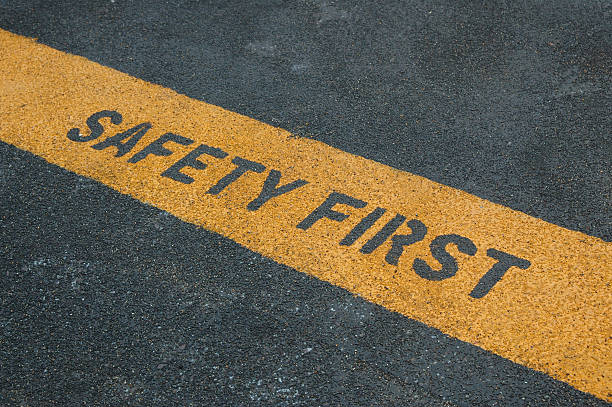
Purchasing a property is a significant investment as you might have heard- the best investment on earth is earth, especially in Nigeria, where the real estate market is both promising and dangerous. Those who have had a taste of property conflicts either among family members or with local Omonile (the land grabbers) will know that due diligence before acquiring a property puts the mind at ease.
During my younger years, I remember vividly my dad attending different meetings with a community head over a dispute about a particular property that he purchased. A member of the family sold the property in question without the consent of his other relatives, and the aggrieved members of the family, feeling cheated, reported to the community head. The dispute was resolved without a legal tussle. But not every property dispute has such a fortunate ending.
With the right legal knowledge, you can navigate the complexities of buying property and avoid falling victim to scams. Although this guide is not exclusive, I did some research that will educate you on the necessary steps to take when acquiring a property. This guide will walk you through the key legal considerations, provide historical context, and share real-life examples to help you make informed decisions.
Understanding the Historical Context of Land Ownership in Nigeria
Before diving into the legalities, it’s essential to understand the historical background of land ownership in Nigeria. The Land Use Act of 1978 is a pivotal piece of legislation that reshaped land ownership in the country. Under this act, all land in Nigeria is vested in the state government, which holds it in trust for the people. This means land can only be leased, not owned outright, with a maximum lease period of 99 years.
The Land Use Act as a whole is an ‘Act to Vest all Land comprised in the territory of each State (except land vested in the Federal government or its agencies) solely in the Governor of the State, who would hold such Land in trust for the people and would henceforth be responsible for allocation of land in all urban areas to individuals resident in the State and to organizations for residential, agriculture, commercial and other purposes while similar powers will with respect to non-urban areas are conferred on Local Governments.’
This law was intended to streamline land acquisition and prevent disputes, but it has also led to complications, especially for those unfamiliar with the legal landscape. Understanding this historical framework is crucial when buying property in Nigeria, as it directly impacts the type of ownership you can acquire. It is safe to say all lands belong to the government ultimately no matter the sort of legal title or document we might have on our property because the law dictates it.
Key Legal Considerations When Buying Property
1.) Conduct a Thorough Title Search
What is a Land Title?
A land title is a vital document that certifies ownership of a parcel of land. It includes important details such as the owner’s name, a legal description of the property, and any encumbrances like liens or easements. The title also records the history of previous ownership and outlines any restrictions or conditions on how the land can be used.
Another common mistake or oversight involves buying properties with fake land titles. Many scammers forge documents to make it appear that they own the property, only for the buyer to discover later that the title is fraudulent.
Before purchasing any property, it’s vital to conduct a title search to ensure that the seller has legal ownership and the right to sell the property. This involves checking with the Ministry of Lands of the state where the property is to confirm that the property is free from any encumbrances, such as mortgages, liens, or legal disputes. A clean title guarantees that you’re dealing with a legitimate owner. You can also make use of a certified Surveyor or Real Estate consultant to help verify the property you want to acquire.
Types of Land Titles in Nigeria

Certificate of Occupancy (C of O):
What is a C of O? A Certificate of Occupancy (C of O) is a legal document issued by the government in Nigeria that confirms the right of a person or entity to use and occupy a specific parcel of land. It serves as proof of ownership under the Land Use Act of 1978, which vests all land in the state government. The C of O outlines the terms and conditions under which the land is held, typically for a lease period of up to 99 years. It also specifies the land’s intended use,as there are different types of C of O, whether residential, commercial, or agricultural, and is essential for securing legal ownership and avoiding disputes.
In Nigeria, the Certificate of Occupancy (C of O) is a crucial document that proves the government’s consent to the use of the land. It’s essential to verify that the property has a valid C of O. Without this, your ownership could be contested by the government or other parties.
Governor’s Consent:
When a piece of land with an existing title (such as a C of O) is sold or transferred, the new owner must obtain the governor’s consent to ensure the transaction is legally recognized. Without this consent, the transfer is not complete, which could lead to legal complications. This step ensures that the government approves and records the transfer of land rights.
Deed of Assignment:
A Deed of Assignment is a legal document that records the transfer of ownership of land or property from one party to another. It includes important details such as the names of the buyer and seller, a description of the property, and the terms of the sale. This document is usually required for registering the property with the relevant authorities. The deed of assignment must be registered at the Ministry of Lands to be legally binding. Without it, your claim to the property may be deemed invalid. The name of the seller must appear on the document to avoid scams involving selling the same property to multiple buyers, leaving the actual owner to sort out the legal mess. This scam practice is prevalent with undeveloped lands so you need to beware.
Survey Plan:
A Survey Plan is a document that clearly describes the boundaries, size, and location of a piece of land. It is prepared by a licensed surveyor and is essential for avoiding disputes over land boundaries. The survey plan carries coordinate numbers which are crucial for verifying property legality.
They define precise property boundaries, ensuring accuracy and preventing disputes. To verify, check the survey plan, consult a licensed surveyor, cross-reference with government and records. Accurate coordinates confirm legal and zoning compliance for property investments. The Survey Plan is often required when applying for other land titles, such as the Certificate of Occupancy.
Excision and Gazette:
Excision refers to the process by which the government releases a portion of land from a larger expanse (often communal or government-owned) to private individuals or communities. Once the land has been excised, it is documented in a government publication known as a Gazette. The Gazette serves as proof that the land has been officially released, allowing the landowner to apply for a Certificate of Occupancy.
2.) Engage a Qualified Lawyer
In my experience in the Real Estate industry, I have seen lots of people avoid the expertise of lawyers when acquiring a property to avoid the cost of legal representation but navigating the legal intricacies of property acquisition in Nigeria requires the expertise of a qualified real estate lawyer. They can help you review contracts, ensure compliance with regulations, and represent your interests in negotiations. A lawyer’s guidance can prevent costly mistakes and protect you from fraudulent schemes. Don’t mind the legal fees, be more focused on the peace of mind you get to enjoy from buying a property free from litigation because the resources you don’t spend on legal consultation could later go into ensuing legal battle costs not to talk of the time you would spend at settling, and ultimately the property might be lost.
3.) Be Aware of Local Zoning Laws
Acquiring a property in Nigeria, especially in rapidly developing areas like Epe, Ikorodu, and Ibeju Lekki, requires a thorough understanding of local zoning laws. These laws regulate land use, ensuring that development is controlled and consistent with the urban planning goals of the region. Different regions in Nigeria have specific zoning laws that dictate the use of land. These laws can impact your ability to develop or use the property as intended. Ensure that the property you intend to buy is zoned for your desired use, whether it’s residential, commercial, or agricultural. A friend of mine once purchased a property in Epe, Lagos state and upon consultation, it was discovered it was under agricultural acquisition. It is pertinent to make this research before and not after the purchase of a property.
Five Essential Steps to Protect Yourself When Buying Property

- Work with Verified Real Estate Companies: The Nigeria Real Estate market is highly saturated with different firms and it can be quite challenging to differentiate between legitimate and illegitimate brands. Only deal with real estate firms that are registered with the relevant authorities and have a proven track record. There have been different brands that have scammed investors of their hard-earned money so due diligence is of the essence. Recently, I discussed with a family friend and she told me how she paid for land to a real estate company and didn’t get the land. This should not be you! Avoid it.
- Insist on Physical Inspections: Never purchase a property without physically inspecting it. This helps you verify the property’s condition and confirm that it matches the description. If you are not around you can also get the help of a trusted friend or family to check the property on your behalf. There have been instances of people buying properties without physical inspections and the resultant effect is not palatable as the land could be water-logged, or even different from the pictures or videos sent to them.
- Document Everything: Keep records of all transactions, communications, and agreements related to the property purchase. From payment receipts to the agreement forms signed between the buyer and seller which seem inconsequential documents can serve as evidence in case of disputes. Of course, we are not hoping for legal disputes but in the case of one, it is best to have all the ace up our sleeve.
- Consult the Community: Engage with the local community to gather information about the property’s history and any potential issues. One of the best ways of getting information about a property is by talking with those in the community. You will be surprised by how much they know. Their words are of course not to be taken verbatim but they carry a whole lot of weight since they know the history of the property in question. Recently, a man wanted to buy a property in Ibadan close to the circular road area at Ajia but after consulting with the residents of the area he was advised against it. He was told that the land had a dispute between two families and it proved to be true.
- Consult a Good Real Estate Agent: Partnering with a skilled real estate agent is essential for protecting yourself during property transactions. An experienced agent offers valuable market knowledge, helping you avoid overpaying by providing accurate property values and market trends. They perform thorough due diligence, ensuring all legal documents are in order and identifying potential issues, thus minimizing legal risks. With their expert negotiation skills, they secure the best possible deal and favourable terms.
Real estate agents also connect you with trusted professionals, like inspectors and lawyers, who assist with property inspections and legal reviews. They handle the complex legal processes, ensuring all paperwork is completed accurately and promptly. Additionally, a reliable agent helps you avoid property scams by verifying the legitimacy of the property and the seller. Overall, a competent real estate agent streamlines the buying process and protects your investment, making them a crucial asset in real estate transactions.
Conclusion
Investing in property in Nigeria is a major commitment, and achieving a safe and successful transaction demands careful preparation and thorough research. Grasping the historical context of land ownership, especially the Land Use Act of 1978, is fundamental. This legislation places all land under state government control and permits leaseholds of up to 99 years. Understanding this framework helps you navigate legal complexities and avoid potential issues.
Critical legal steps include performing a detailed title search to verify genuine ownership. Ensure that essential documents like the Certificate of Occupancy (C of O), Governor’s Consent, Deed of Assignment, Survey Plan, and Excision and Gazette are accurate and valid. Each document is crucial in confirming legal ownership and preventing future disputes.
Hiring a knowledgeable real estate lawyer is vital. Their expertise in legal matters ensures that contracts are correctly reviewed, regulations are met, and you are shielded from fraudulent schemes. While legal fees may seem high, the expense of legal conflicts can be far more burdensome.
Understanding local zoning regulations is also important. Knowing how zoning laws impact land use helps prevent development issues and aligns your investment with regional planning objectives.
To further safeguard your investment, choose reputable real estate firms, insist on a physical inspection of the property, and keep detailed records of all transactions. Engaging with the local community can reveal valuable insights into the property’s background and potential problems. Additionally, collaborating with a proficient real estate agent provides market expertise, thorough due diligence, and effective negotiation, ensuring a smooth process.
By following these guidelines, you’ll be equipped to make informed decisions, avoid common pitfalls, and protect your property investment in Nigeria. Your careful planning and diligence will not only ensure a successful purchase but also offer peace of mind, making your investment both secure and rewarding.
Leave a Reply